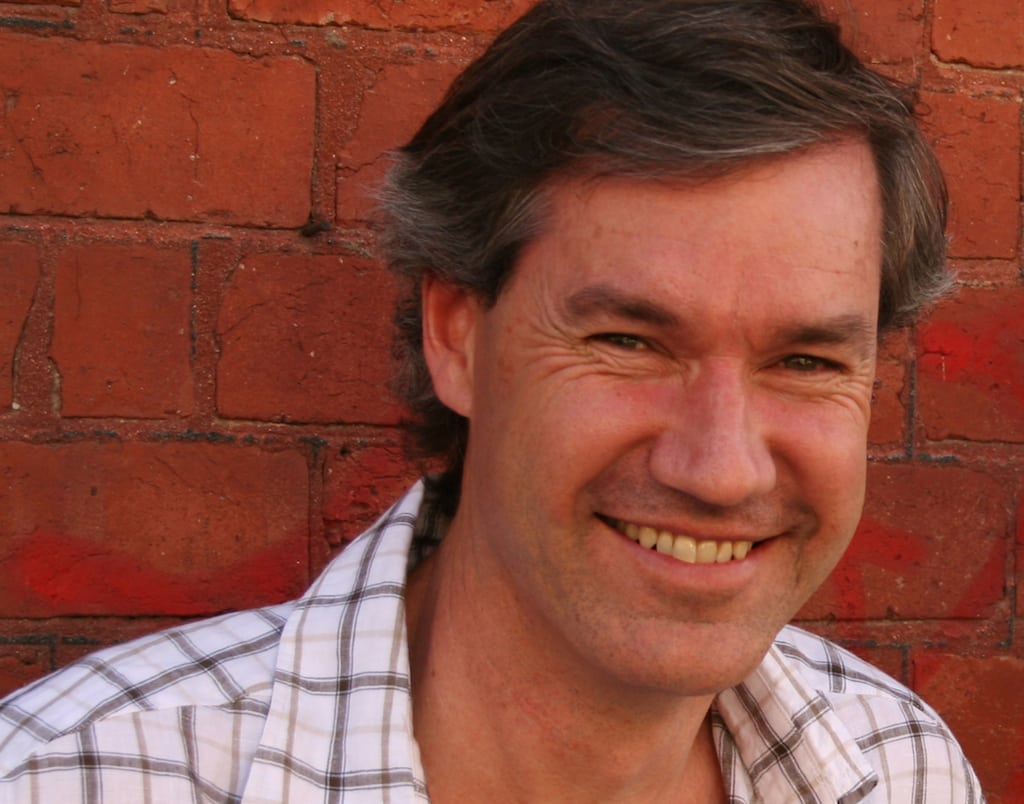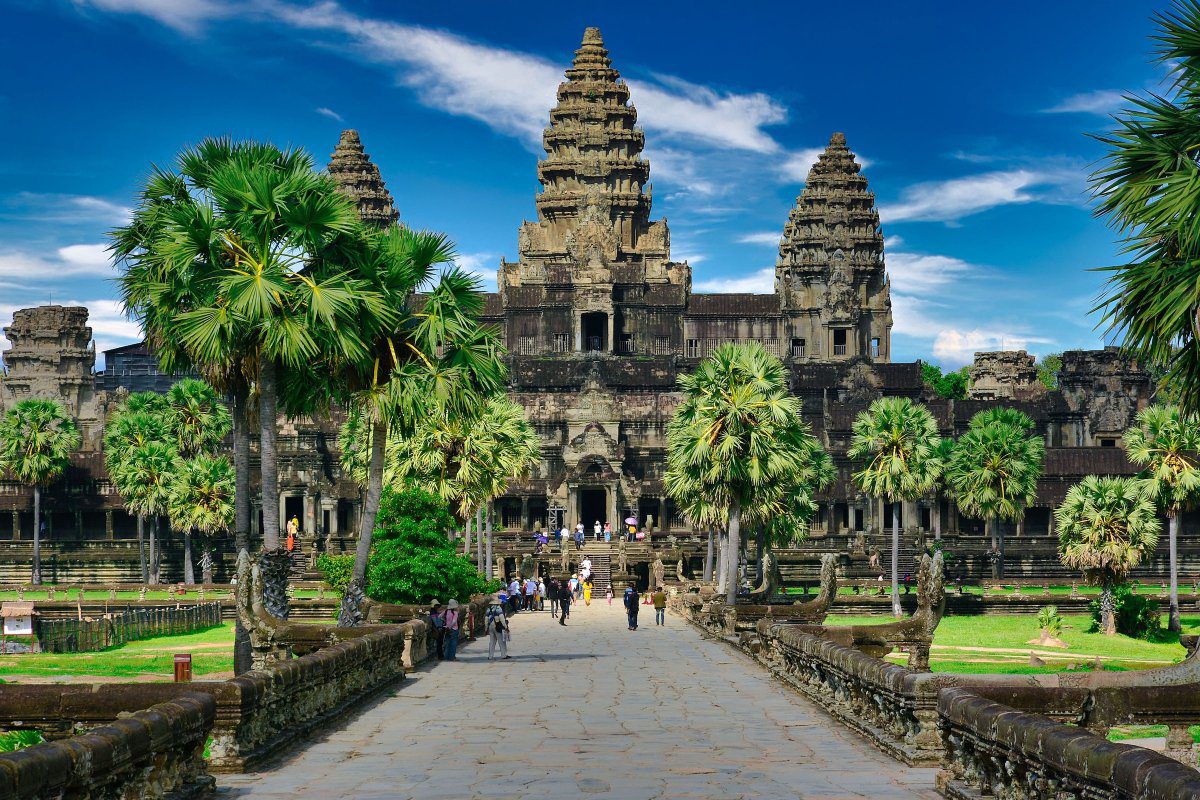Skift Global Forum: Adventure Travel Pioneer Darrell Wade on Travelers' Local Obsesssion

Skift Take
Travelers today are seeking authentic experiences where they not only connect with locals, but have the opportunity to contribute to the economy and learn something about the world and themselves.
The trend might be seen as a sea change in traveler interests to some, but Darrell Wade, CEO of PEAK Adventure Travel Group, has been obsessed with the topic for more than 25 years.
Wade co-founded Intrepid Travel in 1989 with the goal of getting small groups of travelers into unique destinations for an affordable cost. The company has since evolved into a collection of adventure travel businesses with more than 350,000 customers, who have traveled to more 100 countries.
Wade, who has spent his career making unique and meaningful experiences accessible to everyday travelers, will speak October 9 about the mainstreaming of experiential travel at the Skift Global Forum on The Future of Travel. Skift caught up with Wade for a discussion on the increasingly broad appeal of experiential travel.
Get Your Ticket to the Skift Global Forum
Skift: What are some of the causes that contributed to the global rise of interest in experiential travel?
Darrell Wade: I see the interest in experiential travel like a snowball rolling down a hill – the further it goes, the bigger it gets, and eventually people start to notice.
We started Intrepid Travel 25 years ago now and most in the industry thought we were crazy, but the traveling public loved the experiences we offered and got the snowball rolling for us.
Every year we broadened and deepened the product offering, taking more and more travelers – so the snowball kept growing. Eventually, there's a critical mass and “all of a sudden” everyone seems to be talking about the importance of experiences. It’s that classic overnight sensation that was 25 years in the making!
Skift: What does “experiential travel” actually mean, beyond a marketing term? Has it become so overused that it means nothing?
Wade: The underlying trend to experience rich travel will keep going because the traveling public is constantly looking for a deeper level of immersion into the destination they are traveling to. People want to see, touch, feel, smell, understand and get highly personal with their destination.
Of course, like anything, there’s always a danger when marketing departments and ad agencies try to spin things and put words before substance. It takes talented people on the ground doing research and thinking to create exceptional experiences of value for today’s travelers. I always think of experiences like great art: You may not know how to create it, or even how to define it – but you know it when you see it. Likewise, there are plenty people out there creating bad art – hands, paintbrushes and canvas aren’t enough. But even with a profusion of imitation art, great art continues to flourish.
Skift: How do sellers of commodities such as airlines and train operators appeal to customers concerned with making every aspect of their trip an “experience”?
Wade: To be honest, I don’t think they do. An airline can create a wonderful, premium product, or even put a quirky twist on things at the back end of the plane, but when it all boils down airlines provide a commodity product -- getting people from A to B.
Some hotels are trying to make inroads into the experiential space and a few are even doing a good job. But again, the unfortunate reality for hotels is that real experiences in a destination happen outside the hotel walls, not inside them. For an experience to be called an experience there has to be something transformational about it. The traveler has to come away thinking differently, or with a lightness in their step. When was the last time you got that from a airline?
Skift: What are the risks involved in mainstreaming experiential travel? Are local communities or sites at risk of contamination from the rising number of tourists?
Wade: Tourism has an alarming tendency to kill the golden goose by scaling things beyond their natural capacity. Expressions like “you should have seen this place 10 years ago, before all the tourists arrived” or even asking about the next “hot” destination are indicative of this slash-and-burn industry. Well-crafted experiences work because they are fresh, vital and personal to the traveler and host alike.
By definition if you scale any particular experience too much, it becomes less fresh, less vital, less personal – a bland commodity like so many other travel products out there. Skilled practitioners in the space spend considerable time and effort to research stimulating experiences and then spread the load across the community.
For example, we recently started “home cooked” experiences in our Urban Adventures business. It is essentially taking people into real homes to eat with real local families in a completely authentic environment so as to encourage cultural exchange between traveler and host: a mutually rewarding experience. We knew from experience that if we only had one home to take travelers to in a given town then the host would eventually get bored and disengaged with the product becoming a transaction rather than an experience. The goose would be dead.
We went out and found a number of homes and hosts across each community and had different travelers going to different houses on different nights. This keep visitation frequency low and the engagement factor high. The program has been a stunning success.
Of course, it’s much harder from an operations' perspective to do this as it means more research, more training, more logistics. But, it builds a sustainability into the business model. It also spreads wealth and opportunity across the community, which is important to us from a philosophical point of view. We keep the goose alive in the process.
Skift: How does a tour operator and destination marketer stand out when all their competitors are also now promoting experiential travel? Is this the new standard?
Wade: In a way, I hope it is a new standard. If operators can build sustainable and meaningful experiences in to their travel products then clients will enjoy their travel more and want to commit more of their discretionary income to travel.
We create a virtuous cycle, where everyone wins. Not least of which are local communities, because people of relatively humble origins are often the experience fulfiller. We see a redistribution of wealth towards those people and communities that understand the power of the experience and get the delivery right.




